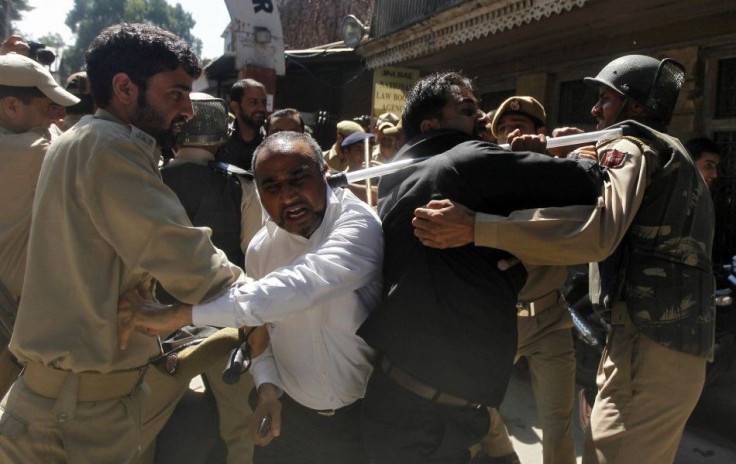Indian Muslims Stirred, But Not Shaken, By 'Innocence Of Muslims' Protests

Indian Muslim leaders are demanding a ban on the film "Innocence of Muslims," which has already sparked protests in over a dozen countries worldwide, including India-administered Kashmir, according to the Indian outlet Twocircles.net, which caters to the 160-million strong Indian Muslim community.
In the Punjab region, the Shahi Imam of Punjab condemned the movie, demanded that the Indian government ban it, and also criticized U.S. President Barack Obama.
"How could liberal president Obama not know that a film was being made in his country which could hurt the sentiments of billions of Muslims across the globe and put... world peace in danger?" he asked, perhaps not understanding the extent to which the U.S. government does not control its people.
Another Muslim leader in Hyderabad, Ahmed Pasha Quadri, demanded that the police punish anyone caught distributing or showing the video. But he also called for increased security at the U.S. Consulate in Hyderabad, as local police are rumored to be attempting to block the YouTube video of the controversial film.
Violence has already erupted in Kashmir. The protests in that region have reached 15,000 people, NPR said, while the AFP reported on Friday that the Grand Mufti of Jammu and Kashmir demanded that all Americans in the region "immediately leave."
Some protests were reported in the southern city of Chennai, where demonstrators burned an effigy of Obama and shattered some windows in the U.S. Consulate, the AP reported.
But in an interview with another Indian outlet, Rediff News, A.K. Pasha, a professor at Jawaharlal Nehru University in New Delhi said the unrest in the west of India "will impact the Muslim community in India too in some way," but that "Indian Muslims do not get swayed easily."
"Muslims in India are working very hard to be part of the economic growth in [this] country," Pasha continued.
"For them, there is very little room for this sort of fanaticism over cartoons and YouTube videos."
© Copyright IBTimes 2025. All rights reserved.






















